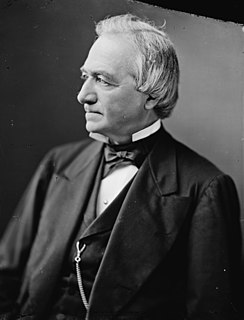A Quote by Tertullian
It is a fundamental human right, a privilege of nature, that every man should worship according to his own convictions.
Related Quotes
The Idols of Tribe have their foundation in human nature itself, and in the tribe or race of men. For it is a false assertion that the sense of man is the measure of things. On the contrary, all perceptions as well of the sense as of the mind are according to the measure of the individual and not according to the measure of the universe. And the human understanding is like a false mirror, which, receiving rays irregularly, distorts and discolors the nature of things by mingling its own nature with it.
We can expect God to provide everything necessary to make worship possible. We children of God must ever be dependent upon God, for we have no resources of our own. We are as impoverished in worship times as a baby unable to provide its own bottle at feeding time. God, the object of our worship, also becomes the inspiration of that worship. He has imparted His own Spirit into our hearts to energize that worship. All that is due Him comes from Him. His glorious Person evokes admiration for and honor of Him, as He imparts His nature into me.
The scriptures, for example, discredit an ancient philosophy that has come back into vogue in our day-the philosophy of Korihor that there are no absolute moral standards, that "every man prospers according to his genius, and that every man conquers according to his strength; and whatsoever a man does is no crime" and "that when a man is dead, that is the end thereof".
In the first section of the Doctrine and Covenants we read that 'the Lord shall come to recompense unto every man according to his work, and measure to every man according to the measure which he has measured to his fellow man.' (D&C 1:10.) This principle, showing the manner by which God will judge us, puts a new light upon the commandment to love our neighbors as ourselves, and should persuade us to take that law seriously.


































